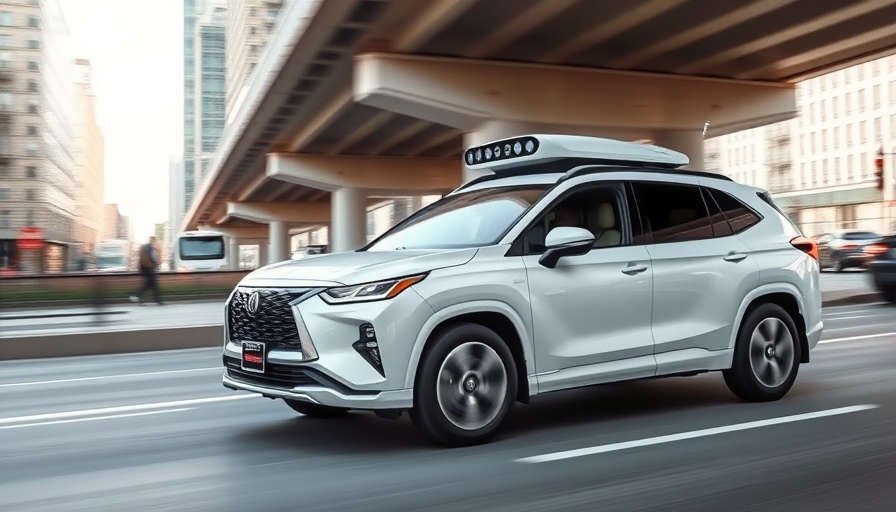
Zoox Expands Testing to the Nation's Capital
Amazon-owned Zoox has officially chosen Washington, DC as its next testbed for autonomous vehicles. This expansion marks a strategic move as the company diversifies its testing environments, which previously included major cities on the West Coast and in the South. Starting this year, Zoox will deploy retrofitted Toyota Highlanders equipped with cutting-edge sensors and software to map the city’s streets manually. After mapping, the company plans to initiate testing with autonomous vehicles, albeit with human safety operators ready to take control if necessary.
Why Washington, DC?
Washington, DC presents a compelling case for testing autonomous vehicles due to its "complex and unique street layout" combined with varying seasonal weather. The city's mix of traffic circles, diagonal avenues, and a high volume of pedestrians and cyclists means Zoox’s technology will face challenges that are essential for developing robust self-driving systems. Additionally, test conditions will differ throughout the year, ranging from humid summers to potential snow in the winter. This varied climate allows for a comprehensive assessment of the vehicle's performance across different weather conditions.
The Future of Robotaxis in Urban Settings
With this expansion, Washington, DC becomes the eighth location for Zoox, joining cities like San Francisco and Las Vegas. The company is not just satisfied with regular testing; Zoox is actively working on launching a commercial robotaxi service, similar to what is already in operation in Las Vegas. However, regulatory requirements remain a significant hurdle. Zoox has received a temporary exemption from the National Highway Traffic Safety Administration, which permits them to demonstrate their vehicles on public roads for research and testing. The ultimate goal is to acquire the necessary permits for a full-scale robotaxi rollout.
Competitive Landscape and Future Innovations
As the autonomous fleet in Washington begins to expand, the competition will intensify. Waymo, another leader in the autonomous vehicle industry, has already commenced testing in the capital and aims to start offering rides next year. The growing presence of self-driving technology in urban settings raises questions about how consumers will adapt to this change. Residents in DC stand to benefit from increased transportation options, possibly reducing traffic congestion and enhancing mobility for those who lack access to conventional transport.
Consumer Implications and Urban Mobility
The emergence of autonomous vehicles can radically reshape urban landscapes and the way inhabitants engage with transportation. Increased options could lead to deeper connections between public and private transportation systems. This step towards a seamless transportation experience is pivotal, particularly in urban settings like DC, where reliable and efficient transport is crucial. For automotive consumers, this testing phase signals an impending shift in ride-hailing services and possibly even ownership models.
Beyond the Tech: The Societal Impact
The advancements posed by Zoox and other autonomous vehicle developers are set against a backdrop of societal needs for sustainable and efficient transport options. As public acceptance grows, the potential risks and challenges—such as safety concerns, regulatory hurdles, and logistical issues—must be continually addressed. Understanding these nuances allows consumers and policymakers alike to engage more thoughtfully with this evolving landscape.
Conclusion: What Lies Ahead
As Washington, DC opens its streets to autonomous vehicles, the implications for both consumers and the environment are profound. With multiple companies, including Zoox and Waymo, vying for dominance in the robotaxi market, the upcoming years will likely see accelerated advancements in automotive technology, improved urban mobility, and evolving consumer choices. Keeping an eye on these developments will provide valuable insights into the future of driving and city living.
 Add Row
Add Row  Add
Add 




Write A Comment